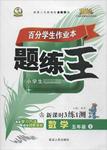题目内容
Jack likes taking photos wherever he goes, so his father bought him a ________ on his 14th birthday.
A.violin B.camera C.bicycle
练习册系列答案
 百分学生作业本题练王系列答案
百分学生作业本题练王系列答案
相关题目
题目内容
Jack likes taking photos wherever he goes, so his father bought him a ________ on his 14th birthday.
A.violin B.camera C.bicycle
 百分学生作业本题练王系列答案
百分学生作业本题练王系列答案